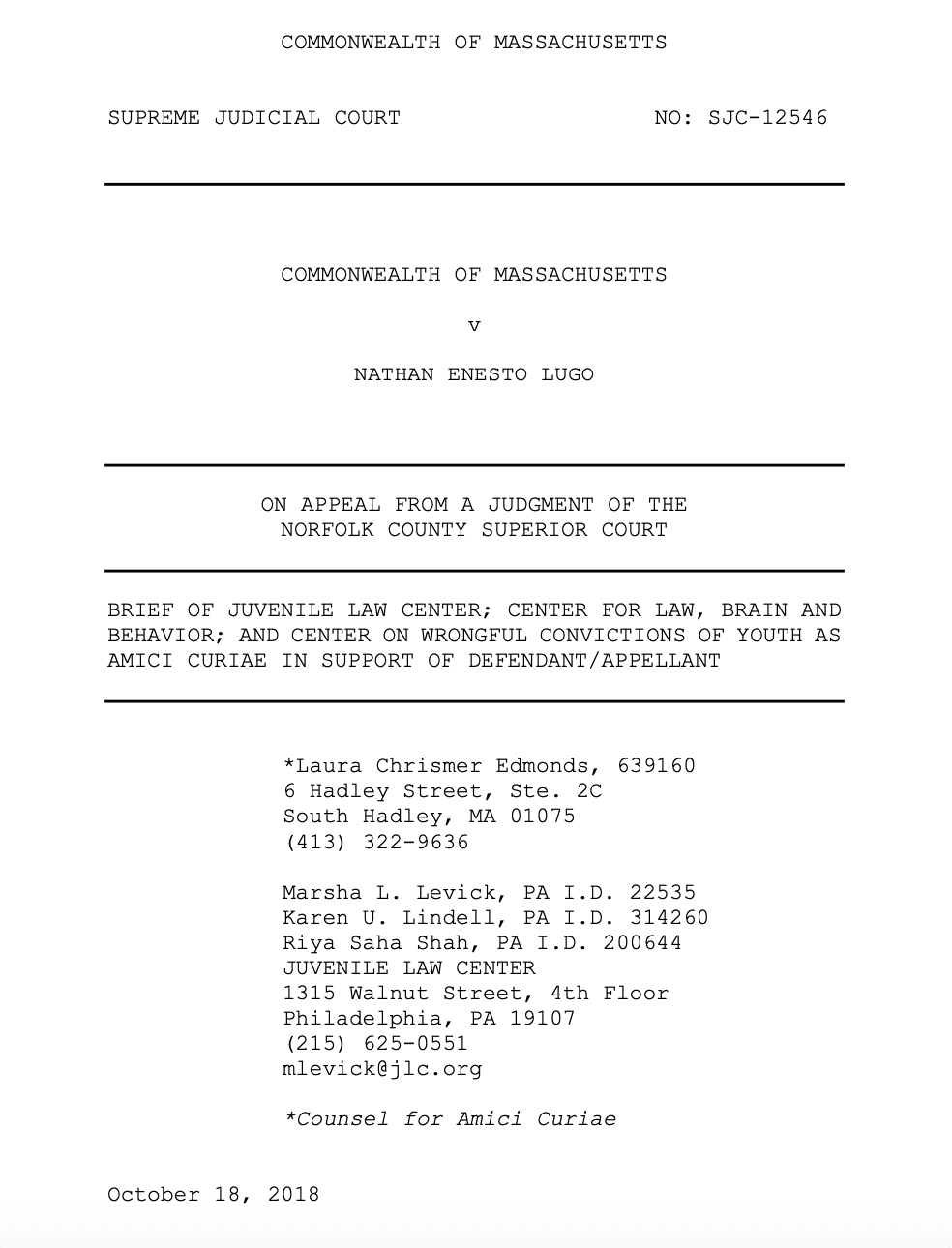
Summary of Argument
Relying on both common-sense perceptions and a growing body of scientific evidence, this Court and the U.S. Supreme Court have ruled that age and its attendant characteristics are constitutionally relevant and must be taken into account when sentencing juvenile defendants. See Montgomery v. Louisiana, 136 S. Ct. 718, 726 (2016); Miller v. Alabama, 567 U.S. 460, 471 (2012); J.D.B. v. North Carolina, 564 U.S. 261, 271-72 (2011);Graham v. Florida, 560 U.S. 48, 76 (2010); Roper v. Simmons, 543 U.S. 551 (2005); see also Commonwealth v. Perez, 480 Mass. 562, 628-29 (2018); Diatchenko v. Dist. Att’y, 466 Mass. 655, 669-70 (2013). Under this line of precedent, mandatory sentences that impose harsh adult penalties on juveniles without individualized consideration of age and other mitigating factors violate the Eighth Amendment. In Miller v. Alabama, the Supreme Court broadly condemned mandatory sentencing schemes that “prevent the sentencer from taking account of these central considerations.” 567 U.S. at 474; see also infra Section I.A. Four years later, the Court underscored the need for individualized sentencing in Montgomery v. Louisiana, highlighting that children differ not just from adults, but also from each other. 136 S. Ct. at 734-35; see also infra Section I.B. In response to these decisions, states are moving away from mandatory sentencing schemes for juveniles, recognizing that these schemes risk disproportionality in their enforcement because they fail to account for individual mitigating circumstances. See infra Section I.C.
Harsh, mandatory sentences are particularly inappropriate when, as in this case, they are imposed for homicide offenses that include felony murder theories of liability. The rationale for felony murder— that a person who engages in a dangerous felony should reasonably foresee the risk of death—is at odds with scientific research on adolescent development. See infra Section II.A. As this Court and the U.S. Supreme Court have recognized, adolescents process information differently than adults, are prone to sensation-seeking or risky behaviors, and may act impulsively, particularly in emotionally charged situations. See infra Section II.B. Imputing an intent to kill from a juvenile’s mere participation in a felony therefore contradicts both the Supreme Court’s juvenile jurisprudence and psychological and neuroscientific research.
In this case, a 17-year-old was convicted under Massachusetts’ second-degree murder statute and thus automatically faced life in prison with a minimum term of imprisonment of 15 years. Because the trial court did not have any discretion to consider Mr. Lugo’s age or other mitigating circumstances before imposing this harsh adult sentence, it is unconstitutional under Miller. Accordingly, Amici ask this Court to reverse Mr. Lugo’s conviction and sentence and remand the case for an individualized resentencing.
Open Amicus Brief as PDF